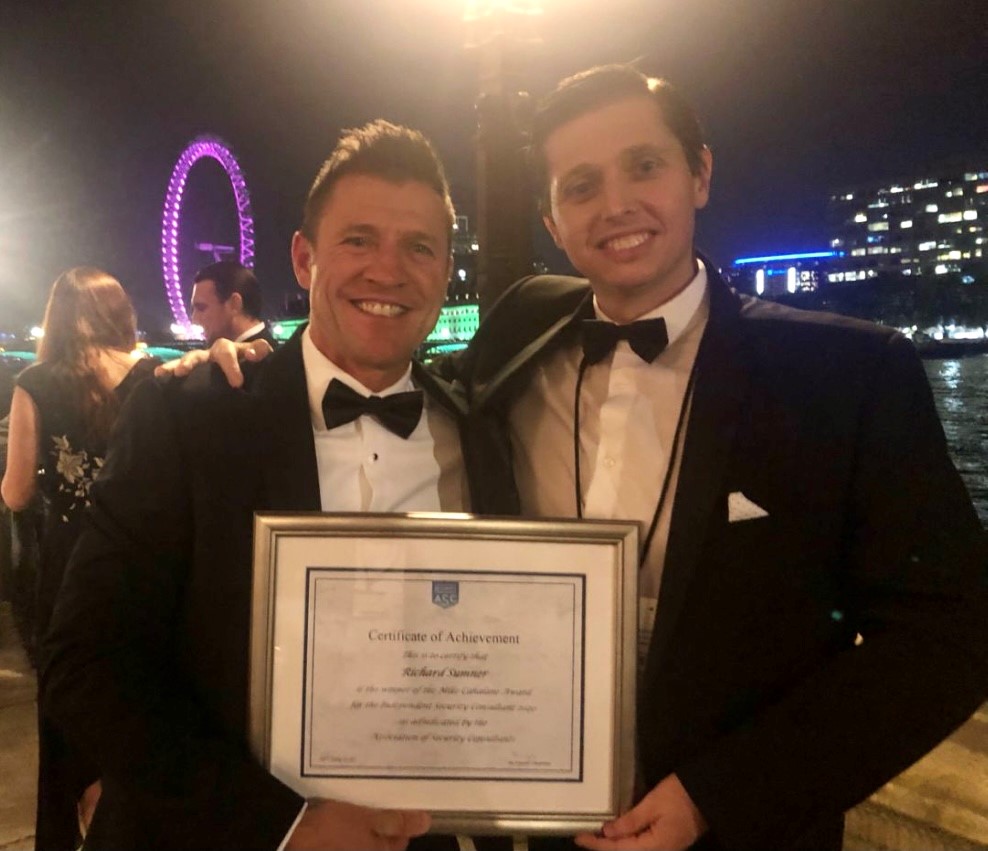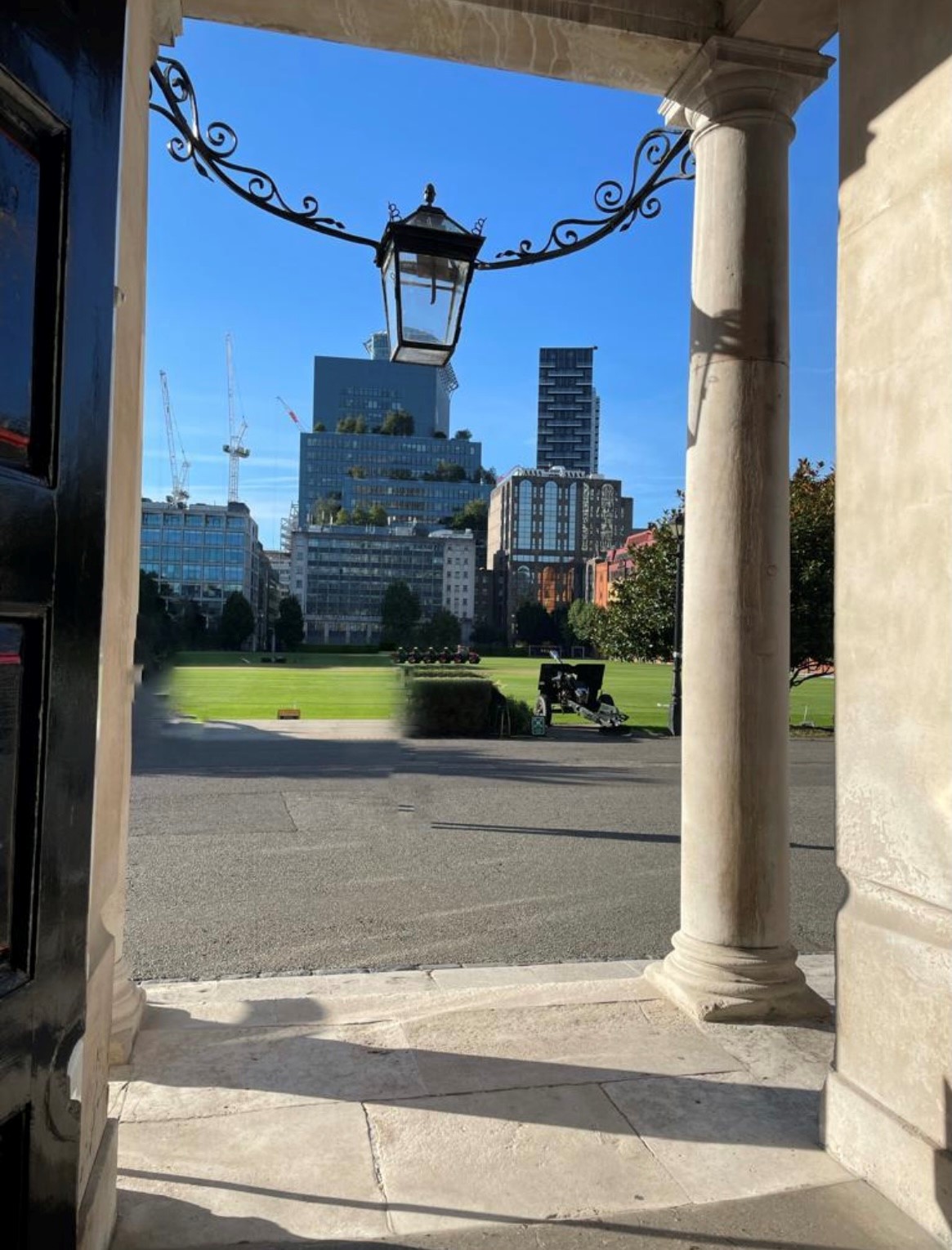
Our new website in now live
Busy summer is underway
The past month has been a busy one for our industry, with many outdoor events creating huge crowded places.
The Queen's Jubilee, Glastonbury and Wimbledon to name a few. And the Women's Euros are just around the corner.
Understandably, after two years of pandemic disruption, many people want to take the opportunity to relax and enjoy themselves. Which, of course, presents us with the challenge of keeping safety and security high on the agenda.
As always, we are here to support each other and in this month's bulletin we hear from two industry leaders.
First up we introduce my new co-chair, Paul Easter. Paul will take over from me at some point this year, but for now we are jointly in the seat.
Below is a little about Paul, then further down he gives us an account of a recent role he carried out for the Department of Health.
Also below is an interview with Deputy Assistant Commissioner Dean Haydon QPM, who retires from the Met Police next month. Dean has been a good friend of the ASC and we wish him well with future endeavours.
We were pleased last month to unveil our new website. Click here to view.
With a more modern look that better reflects our organisation, we’d love to receive your feedback on the new layout (contact secretary@securityconsultants.org.uk).
If you haven't seen it yet, please spare a couple of minutes to take a look and let us have your thoughts.
Warm regards
Joe
1 - ASC Chair, Joe Connell
Introducing our new chair-elect
I am honoured to be selected for the role of chair for the Association of Security Consultants. I will be taking up the role when current chair Joe Connell steps down later this year.
I have been the Honorary Secretary for the last six years working for Joe and am aware of the huge efforts he and the Board have made in placing the ASC on a firm financial footing, expanding the ASC membership and raising the ASC profile across the security industry.
My background is in the British Army where I served in the Intelligence Corps for sixteen years. Subsequently I have run a intelligence and security consultancy for the last twelve years providing risk management service for global clients and training for government agencies in the UK and overseas.
I am very much looking forward to taking up the role, and conscious of the huge void Joe will leave when he departs, will be shadowing his work for the next few months. I intend to build on the good work of the current board and am keen to expand the membership of the new corporate area. This new membership category comprises senior security directors in large organisations. They are responsible for significant security service purchase decisions and I will seek to provide them with a trusted pool of security consultants they can use within the ASC rather than the time consuming process of looking across the whole market. This will in turn provide a focussed audience for ASC member services.
I look forward to meeting you all over the next few months and continuing to build on the success of the ASC
Paul Easter
DAC Haydon announces retirement
CT Policing’s Senior National Coordinator, Dean Haydon, has announced his retirement - calling time on a 34-year career with the Metropolitan Police at the end of next month.
Beginning his service as a cadet, Mr Haydon went on to rise through the ranks – working in many security-related posts as well as serious crime.
As a patrolling young constable, he was first on the scene of an IRA attack at Wembley’s Army recruitment office in 1990, going on to lead the investigation into the Salisbury poisoning as a Deputy Assistant Commissioner in 2018.
His first major CT role was as the UK’s Disaster Victim Identification lead in response to the 9/11 attack and later played a similar role for the recovery of victims of the MH17 air crash in Ukraine. He played key investigation roles as part of the 7/7 and 21/7 response and the 2017 London and Manchester attacks.
He was appointed Commander of London’s CT team, SO15, in 2015 and became the national lead for CT investigations two years later. In recognition of such an influential career, he was awarded the Queen’s Police Medal in 2019.
To successfully disrupt attacks there is also a need to collaborate nationally and internationally and DAC Haydon is currently the President of LiNCT, a unique partnership between the ‘five eyes’ nations that works to share best-practice and learning to better-protect citizens globally.
Reflecting on his time heading up the national CT network, and looking ahead to the challenges for his successor, DAC Haydon said: “The threat has changed considerably from my early days in CT. We have gone from dealing mainly with terrorist organisations that were structured and planning for large scale, complex atrocities to lone actor, low tech attacks that are much harder to detect.
“The growth of online radicalisation, and the easy access to encrypted digital communications, makes it harder but even more crucial we have the resources to stay ahead of the game.
“While the threat has diversified and grown during my tenure, we have benefitted from stronger partnerships with many communities – including the business sector – helping us improve protective security and intelligence gathering. This needs to continue if we are to keep security and public vigilance at the forefront of everyone’s mind.”
The Novichok poisonings in Salisbury also put the spotlight on hostile state activity - and events in Ukraine have been a reminder that this area of policing is likely to expand over the coming years. A new hub has been formed within the Met to deal with future investigations and prosecutions.
“Previously CT officers have double-hatted on these investigations but now we will have a separate, dedicated team,” adds Mr Haydon. “The new National Security Bill currently going through Parliament will hopefully give us new or updated powers to deal with threats in a way existing legislation doesn’t.”
With so many international news events on his CV, DAC Haydon is hard pressed to pull out one or two that gave him the most professional satisfaction. But when pressed he said: “I think I can feel most proud about the amount of work that went into identifying those responsible for the Salisbury poisonings. I always thought we would get there in the end because I had confidence in the determination of all the people working on the case. But it was a massive effort, in partnership with the UK Intelligence Community. And it was really important we got it right because of the international impact it had.
“I’m also proud of the Parson’s Green man hunt. Within 24 hours of the device detonating on a London tube carriage, we had caught the person responsible.
“Of course, these are attacks that happened, and it’s always a huge regret when such attacks get through the security net. For every attack which gets through there are many, many more that are thwarted and I’m enormously proud of all the proactive work we have carried out to disrupt 34 attacks since 2017. Those don’t get so much coverage but involve huge amounts of dedication and professionalism from the team I’ve been proud to lead.”
The ASC would like to thank DAC Haydon for his past support in attending our events to keep members up to date with the terrorism threat picture. We wish him well for the future – wherever new opportunities take him.
The role of security in tackling the pandemic
ASC member, Paul Easter recently headed up the Threat Integration and Analysis pillar for a specially formed security team at the Department of Health. Here he reflects back on the key role security played in the UK’s approach to tackling Covid-19.
The last two years have been, for most people, some of the strangest they will have known. The pandemic, which was first identified in Wuhan China in late 2019, spread globally and has caused over six million deaths (*1).
It has cost the global economy 11 trillion dollars so far (*2) from which it is stills struggling to recover. Individual liberties were curtailed in ways not seen since the Second World War and it brought out the best in public spirit in some (and not so creditable in others). The lockdowns have accelerated trends in homeworking and online shopping - and have probably speeded the demise of the high street as a shopping nexus.
The UK vaccine programme is rightly regarded as a success story. It is unusual in that it originated not from the usual lengthy tender and down-select process but from one of a position of ‘no regret’. The UK government funded multiple lines of vaccine development with no expectation of success from individual strands but from an expectation of scale leading to a successful outcome. The aim being to get a viable vaccine as quickly as possible.
As vaccines started to come online and be approved (the first was Pfizer-BioNtech in Dec 20 followed quickly by Astra-Zeneca) it was quickly apparent that the scale of the roll-out would be required across the majority of the UK population. Initially targeting the elderly and those with existing medical conditions it eventually would be offered from five year olds upwards, with multiple booster requirements (which are ongoing).
It also was soon evident that an enterprise of this size carried numerous risks, not just those associated with the procurement process but from a security perspective across the end-to-end supply chain. As a consequence, in December 2020 the Cabinet Office authorised the standing up of a small team to oversee the security risk process as part of the vaccine programme.
This was led by a senior civil servant and comprised a mix of civil servants, military and subject matter expert contractors structured into:
- A small leadership team and secretariat
- A threat analysis and liaison pillar
- An operations pillar
The leadership team provided strategic direction across the programme supported by the secretariat, briefing senior decision makers across the Department of Health and Social Care (DHSC) and wider government.
The threat analysis pillar comprised an intelligence analysis and risk management function, alongside liaison officers that would link in with the Devolved Administrations of Scotland, Wales and Northern Ireland (who had devolved primacy for health matters).
Potential threats to the vaccine programme ranged across a broad spectrum, and not always from where it would be expected.
Hostile State Actors: Threats from states peddling misinformation (and disinformation) to denigrate Western vaccines and promote their own globally both for commercial and political influence. This included the ability to influence countries via the COVAX programme which would donate or provide early opportunity to buy vaccines in less developed nations.
Attacks on vaccine efficacy and safety were seen with Astra Zenenca and Moderna particularly. Surprisingly, these attacks also originated from some Western political leaders, who short-sightedly sought to push their own vaccine development at the expense of others (and as an unforeseen consequence suffered significant vaccine hesitancy within their own populations).
Anti-vaccinators (Anti-vaxxers): These individuals and groups from a broad population demographic believe that vaccines can be harmful and seek to prevent elements of the vaccine programme from being delivered. They comprise a spectrum of beliefs from those with quasi-scientific perspectives who cherry pick facts to support their arguments (particularly against child vaccinations) to those of more extreme and illogical beliefs (that vaccines contain microchips to monitor you or that they interact harmfully with 5G masts).
Risks to the supply chain from theft, sabotage and subversion: Initially this presented a major challenge during early stages of the roll-put but loss prevention across the programme was excellent and it reduced rapidly as a risk.
Fraud: Initially a concern but mainly fraud used the vaccine programme as an enabler to gain personal financial details rather than fraud occurring against the programme itself.
Physical security risks to staff: Every Accident and Emergency Department on a Friday night is at risk from violence and anti-social behaviour and this risk extrapolated to vaccine sites. More severe threats such as those from terrorism also existed and at least one ‘bomb hoax’ was delivered as well as an Improvised Explosive Device (IED) to a hospital (although it appears that the initial target was a Cenotaph memorial service).
Cyber Attack: Probably the greatest single risk to the programme, the risk from a criminal network or a hostile state carrying out a opportunistic or directed attack against elements of the vaccine programme. This remained a credible threat across the programme as demonstrated by the attacks against the NHS in Ireland that disrupted the medical records of numerous patients and other attacks in Israel, Belgium and Italy.
Against this range of risks the operations area acted to reduce risks across the vaccine programme. They carried out hundreds of security surveys across vaccine sites to ensure that they were fit for purpose. They supplied a range of activities that reduced potential risks across the whole Enterprise. This included improvements to prevent loss, reduce potential harm to staff and countering wider mis and dis-information.
Against these risks and as part of the wider programme the initial vaccine deployment was highly successful. Vaccinations were delivered ‘into arms’ at a rate above most countries and the UK hit its target of offering the vaccine to all adults by July 2021. Take-up has been very good. By March 2022, 91.7% of the population aged 12 and over had received a first vaccine dose, 85.8% had received both doses and 67.2% had had a booster or third dose (*3).
Despite many challenges the programme and wider government initiatives succeeded in building vaccine confidence and managed to reach a large proportion of the population, although take-up remains lower in some groups and regions. Take-up has also been similar across the four nations.
Overall, the programme should be viewed as highly successful given the ambition of the undertaking and the Covid Security Programme played a small but integral part.
(*1) Report: COVID-19 has cost $11 trillion so far, but it could have been avoided | World Economic Forum (weforum.org)
(*2) Report: COVID-19 has cost $11 trillion so far, but it could have been avoided | World Economic Forum (weforum.org)
(*3) Coronavirus vaccine rollout | The Institute for Government
Share your stories
We want to hear from you
This is your chance to share good news with your fellow ASC members and promote your work.
ASC exists for its members and is here to provide a network where we can support each other, share concerns and celebrate successes.
Get in touch by using the contact details at the foot of this newsletter.
Upcoming Events
Go to our website to see the latest events available to our members and details of how to book.
Next event:
- Event Name:ASC Business Group
- Times:30 - 14:00
- Location:Honourable Artillery Company
- Date:7 July, 2022
This bulletin is compiled by ASC Communications. Please contact us with you news, or to unsubscribe from this newsletter, by emailing secretary@securityconsultants.org.uk




